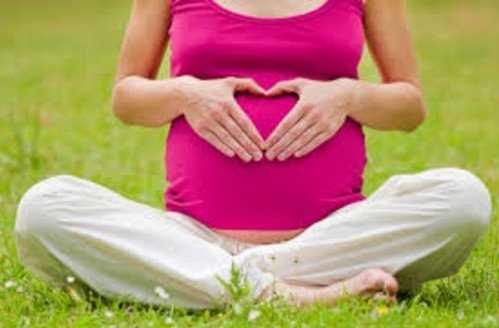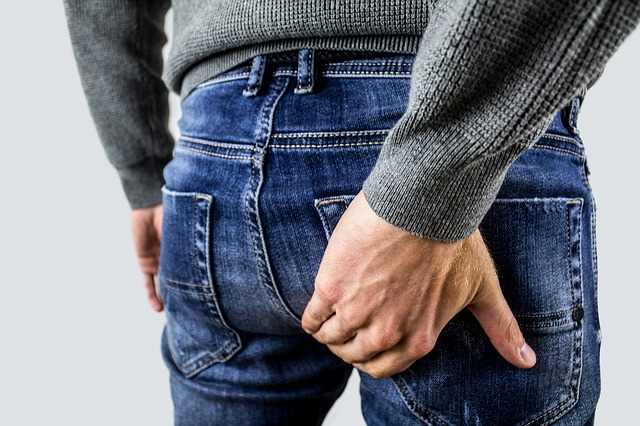How long do hemorrhoids last? Well, the duration of this swelling will depend on many things. Piles will last for long depending on the types one has, are they internal or external, they will also depend on what the underlying cause is and final whether or not the affected person is healthy or not.
Hemorrhoids, also known as piles, are swollen veins located around the anus or in the lower rectum. They are similar to varicose veins. They are very common and nearly every three out of four adults have then from time to time by the age of 50.
Hemorrhoids can either be internal or external. Internal hemorrhoids develop within the anus or rectum, while external hemorrhoids develop outside of the anus. External hemorrhoids are the most common and most troublesome of the two. These conditions cause pain, severe itching, and difficulties in sitting. Fortunately, they are treatable, and they could be prevented as well.
Symptoms of hemorrhoids
Hemorrhoids have many symptoms, especially when they start to become severe. They result in painful bowel movements and strain in a specific area. The rest of the symptoms include;
- Itching or irritation in your anal region
- Swelling around your anus
- A lump near your anus, which may be sensitive or painful
- Painless bleeding during bowel movements- you may notice some bloodstains on your toilet tissue
- Pain and discomfort
Some of the hemorrhoid symptoms depend on the affected area; these include:
Internal hemorrhoids: these lie inside the rectum and can’t be seen or felt, and rarely cause discomfort. They prolapse when their blood vessels swell and extend from their location in the rectum through the anus. In the anal canal, the hemorrhoid is exposed to the trauma of passing stool, especially for hard stools associated with constipation. The trauma leads to bleeding and sometimes pain when the stool passes.
The presence of stool, inflammation, and constant moisture lead to anal itchiness, and occasionally feeling the need to have a bowel movement.
External hemorrhoids: these are under the skin around your anus. When irritated, external hemorrhoids can itch or bleed. They can be felt as bulges at the anus, but they usually cause a few of the symptoms that are typical of internal hemorrhoids. When blood clots inside external hemorrhoids, it is preferred to as thrombosis. Thrombosis causes an anal lump that is very painful and tender.
Thrombosed hemorrhoids may heal with scarring, and leave a tag of skin protruding in the anus. Occasionally, the tag is large, making anal hygiene difficult or irritates the anus.
How long then do hemorrhoids last?
Hemorrhoids can typically go away within a few days without the use of medication, but it ultimately depends on the aggravating factors. Most mild cases clear up in around three to four days without treatment, but larger ones can take a few weeks. Prolapsed hemorrhoids are troubling since they can persist for months at a time and may not clear up without surgery.
1. Internal hemorrhoids
Internal hemorrhoids are deep inside the rectum and are not visible from outside. They are normally painless because there are few pain-sensing nerves there. Often, the first sign of them is rectal bleeding with bowel movement.
Sometimes internal hemorrhoids prolapse or protrude outside the anus. This makes you see or feel moist pads of skin. They may hurt because the anus is dense with pain-sensing nerves.
How long do internal hemorrhoids last?
You cannot tell how long it takes for hemorrhoids to heal; many people feel better after two weeks. Small internal and external hemorrhoids may heal within seven days. In the case of internal hemorrhoids enlarge and come out of the anus, they may need at least two months to improve.
2. External hemorrhoids
External hemorrhoids are located underneath the skin that surrounds the anus, where there are many more pain-sensing nerves, that is why they tend to hurt as well as bleed. Sometimes hemorrhoids prolapse, or get bigger and bulge outside the anal sphincter. They can be felt when they swell and may cause; itching, pain, or bleeding with bowel movement.
Blood clots sometimes form within the prolapsed external hemorrhoid, which can cause an extremely painful condition called thrombosis. If an external hemorrhoid becomes Thrombosed, it can look rather frightening and may turn blue or purple or sometimes bleed.
Thrombosis, though very painful at times, is usually not very serious. This condition may resolve on its own after a couple of weeks. If the pain persists, you may have your doctor remove the blood clot, which stops the pain.
3. When pregnant
Pregnancy is not always pleasant, and one of the experiences that contribute to this is hemorrhoids. Anyone can get piles; they don’t just happen during pregnancy. When you are pregnant, piles can occur because hormones make your veins relax. This happens when because of an increase in the hormone progesterone.

Your growing uterus exerts pressure on the pelvic veins and the inferior vena cava, a large vein on the right side of the body that receives blood from the lower limbs. This slows the return of the blood from the lower half of your body, which increases the pressure on the veins below your uterus, causing them to dilate or swell.
Another is another problem associated with constipation- this condition aggravates hemorrhoids because they tend to strain when having a hard bowel movement, leading to hemorrhoids. Hemorrhoids are also particularly common in the third trimester, while some women get them for the first time while they are pregnant. If you have had them before pregnancy, you are more likely to have them again. They may also develop during the second stage of labor while you are pushing.
Discomfort or bleeding from hemorrhoids is a common complaint during the early postpartum period. In most cases, hemorrhoids that develop during pregnancy go away soon after you give birth.
How can you prevent pregnancy hemorrhoids?
The following are tips to try and reduce the likelihood of you developing pregnancy hemorrhoids;
- Drink plenty of water- you should drink at least 2.5 liters of water a day. This helps keep your poop soft and easier to pass.
- Drinking fruit juice, herbal teas, and fluids help to avoid constipation- this is because hard, dry bowel motions are much more difficult to pass, and they contribute to hemorrhoids.
- Avoid sitting on the toilet for too long- you should also avoid placing any unnecessary and prolonged pressure on the bowel and rectum.
- Ensure your diet has large amounts of fiber and roughage- fruits, vegetables, bran, oats, and whole grains are bulk-forming and thus easier to pass.
4. After birth
Hemorrhoids are fairly common, especially after you have a baby. Fortunately, with some simple home treatments and lifestyle choices, you can relieve the itching and pain associated with hemorrhoids. With such an aftercare, this will take up to six months.
5. Flare-ups
What can cause hemorrhoids to flare up? There are some myths and misconceptions about hemorrhoids and what makes them flare-up. Many things can cause hemorrhoids to flare up. The most common cause is due to constipation and hard stools. Anything that can aggravate the thin-walled hemorrhoids veins in the rectum and cause them to swell.
Alcohol and caffeine: drinking too much alcohol tends to dehydrate the body. This can cause constipation and hard stools, which cause hemorrhoids to flare up due to the added pressure from straining. Alcohol and caffeine can also increase your blood pressure, and since hemorrhoids veins are thin-walled, they can often seep blood or break and bleed from the pressure.
Diarrhea: diarrhea is a likely cause of hemorrhoids; this is due to excessive straining during bowel movements or as a result of dehydration, which often occurs as a side effect of diarrhea.
Poor diet: hemorrhoids are likely to flare up in people who skip or eat low fiber processed foods. A low fiber diet can lead to constipation and hard stools, and this is the leading cause of hemorrhoids.
How long do hemorrhoids last?
Hemorrhoid flare-ups have signs of swelling, irritation, and discomfort. They are usually brief, and most symptoms disappear within a few days. In pregnant women, hemorrhoid symptoms usually improve dramatically or disappear after birth.
The intermittent slight bleeding from hemorrhoids as a result of hemorrhoids may carry on for months or years. The painful swelling from thrombosis of external hemorrhoids usually resolves for days to weeks.
6. If untreated
Do hemorrhoids go away without treatment? This condition doesn’t necessarily go away without proper treatment. Pain, itching, and tenderness may persist because there is always pressure on rectal veins during bowel movements. Small internal or external hemorrhoids may heal within a week, while enlarged internal hemorrhoids may take a couple of months to improve.
How long do hemorrhoids bleed?
Bleeding caused by hemorrhoids is usually painless and normally happens during a bowel movement. The bleeding of internal hemorrhoids will not occur for more than 7 days. It may also last a few weeks if the situation causes bursting hence further bleeding. If it extends beyond this period, you should immediately seek doctor’s assessment.
After they burst
Noticing blood in your stool is a sign that your hemorrhoids have ruptured. This requires a quick visit to the proctologist. In most cases, bleeding hemorrhoids are not a serious problem. This condition is caused by too much pressure on the internal veins. This condition can be treated with over the counter remedies like hemorrhoid creams or medicated wipes. You can also soak in a warm bath to reduce pain and inflammation. With such remedies, these symptoms heal after a few days to a week.
Risk factors
You are likely to develop hemorrhoids if you are pregnant. This is because when uterus enlarges, it presses on the vein in the colon, causing it to bulge.
Hemorrhoids can also be passed genetically from parent to child, so if your parents had this condition, you are most likely to get it too.
Consistent weight lifting, overweight body, obesity, or having some other constant strain on your body can increase your risk of hemorrhoids.
Standing or sitting for too long without taking a break can cause the development of hemorrhoids. You can also develop this condition from consistent anal sexual intercourse and diarrhea.
Aging – Hemorrhoids are most common among adults aged 45-65. This, however, doesn’t exclude young people and children from getting them.
Chronic constipation – straining to move stool puts additional pressure on the blood vessels’ walls.
Home remedies for external and internal hemorrhoids
Internal hemorrhoids are a major concern for any individual battling hemorrhoids. Thrombosed prolapsed or bleeding external hemorrhoids cause a lot of discomfort for anyone experiencing them. Prolapsing Hemorrhoids attract more attention when it comes to home remedies. External hemorrhoids have more forms of home treatment compared to the internal because they (external) seem to occur more.
Since the symptoms of internal hemorrhoids are just as painful as those that form outside the anus, finding the best home treatment for both conditions is important.
1. Lemon juice
Lemon contains citric and acetic acids that have great antiseptic, antiseptic, anti-inflammatory, and anti-irritating properties. This makes it an effective remedy for both internal and external hemorrhoids. For internal hemorrhoids, you can take the lemon juice orally. The following is the procedure you should follow;
- Mix half teaspoon of lemon, mint, and ginger.
- Add some honey to taste at the end.
- Drink the mixture once a day for relief.
Alternatively,
- Squeeze juice from half of a lemon and add it to a cup of heated milk.
- Drink it several times a day until the condition improves.
2. Probiotics
It is recommended that you boost your intake of foods that are high in probiotics. You can also go for probiotic supplements, but make sure they are from reliable sources. Probiotics help you obtain balance in your gut. They are also known for relieving constipation and for supporting your general health.

3. Apple cider vinegar
Apple cider vinegar contains acetic acid that is a natural antiseptic. ACV also contains anti-inflammatory and anti-itching properties that make it an effective remedy for relieving pain. The following is how you use this product to treat hemorrhoid conditions;
- Add one teaspoon of apple cider vinegar to a cup of a regular glass of water
- Add some honey if it is too strong to make it easier to wash down
- Mix it well and drink it two times a day
For external hemorrhoids, you can use apple cider vinegar topically, by dabbing a soaked cotton pad to the affected area. This will offer relief from inflammation and itching.
4. Aloe Vera
Aloe Vera has anti-inflammatory, antibacterial, as well as anti-itching properties. It also contains vitamin E that helps keep the skin moisturized as well as reduce itching. This makes it an effective remedy for both external and internal hemorrhoids.
For internal hemorrhoids, consume aloe Vera juice daily. It is recommended that you drink up to 8 oz. of aloe Vera juice until positive results show.
We highly recommend organic cold-pressed Aloe Vera gel (Check price on Amazon)
For external hemorrhoid, this is the procedure;
- Extract the gel from Aloe Vera leaf.
- Apply the gel directly on the affected area while slowly massaging it for the skin to absorb it.
- Leave it for 15 minutes and then rinse it off with lukewarm water.
- Repeat this once every day until the condition improves.
5. Fiber
Fiber is a fundamental addition to your diet if you are suffering from hemorrhoids, regardless of whether it is external or internal. Fiber-packed foods reduce the risk of constipation, which causes the straining of your anus. Foods rich in fiber include vegetables, whole grains, or fruits; they help soften your stool and make bowel movements visibly more comfortable. Some other foods full of fiber include bran; for instance, just one ounce of raw corn bran contains a whopping 22 grams of fiber. You can also enjoy some elderberries, oatmeal, carrots, peas, brown rice, and whole-wheat spaghetti or cooked adzuki beans as alternatives.
6. Water
Specialists suggest that you should normally drink at least eight glasses of water every day. Water is essential for combating internal hemorrhoids, and for such a condition, you should take around 10 glasses per day. This is because a well-hydrated body leads to the soft stool, and this will promote healthy processes in your body. Lack of water sufficient may cause painful bowel movements normally associated with hemorrhoids.
7. Try witch hazel
Witch hazel helps soothe the irritated skin and discomfort with hemorrhoids. This is because witch hazel is an astringent which is commonly used for skin condition. After all, it is an antioxidant. The following is how you apply witch hazel:
- Use witch hazel on cotton pads
- Soak a cotton pad or round witch hazel and then hold it against the hemorrhoid
- You can also refrigerate the witch hazel before use to increase its efficiency.
8. Radish juice
Radish juice contains anti-inflammatory properties that help reduce inflammation and other painful symptoms associated with hemorrhoids. It is recommended for both internal and external hemorrhoids since it has proven to be effective.
The following is how to ensure radish juice works effectively on your body;
- Drink half a cup of radish juice two times every day
- Repeat this remedy for some time- this helps you gain relief, prevent, as well as cure the conditions.
9. Exercise
Sitting down for long periods could be one of the reasons for hemorrhoids. To resolve this, you should boost the amount of exercise you do. Keeping your body active not only fights hemorrhoids but also maintains your overall health and well-being. This is an effective home remedy for internal hemorrhoids treatment for overweight or obese.
10. Hydrotherapeutic bath
Hydrotherapeutic bath, also known as a sitz bath, is a partial bath where just the lower part of the body is soaked in warm water. This is the most popular form of internal hemorrhoids treatment that anybody can prepare quickly and won’t increase hemorrhoid pain in any way. The following is how it is done:
- Ensure the water you use is warm, not hot
- Soak approximately 15 minutes, this way the effects may take place
- You can add some apple cider vinegar to your sitz bath to add effect- this will help reduce inflammation and offer general relief to hemorrhoid symptoms
- Once you are done, gently dry off the area so it won’t remain moist- moist environment could irritate later on.
You can also install a home sitz bath on your toilet:
-
Soothic Sitz Bath for Over The Toilet Postpartum Care, for hemorrhoid and perineal treatment
-
Sitz Baths Install on Toilet for Hemorrhoids Patients with Flush Hose
How to take a sitz bath
References
- Get help for your hemorrhoids: http://www.webmd.com/digestive-disorders/features/get-help-your-hemorrhoids#1
- Hemorrhoids, treatment, recovery, and symptoms: http://www.healthline.com/health/how-long-do-hemorrhoids-last
- Hemorrhoids and what to do about them: http://www.health.harvard.edu/diseases-and-conditions/hemorrhoids_and_what_to_do_about_them
- How long do hemorrhoids last without treatment: http://www.topix.com/forum/health/hemorrhoids/TNNABA2VB0E8KSTMH


